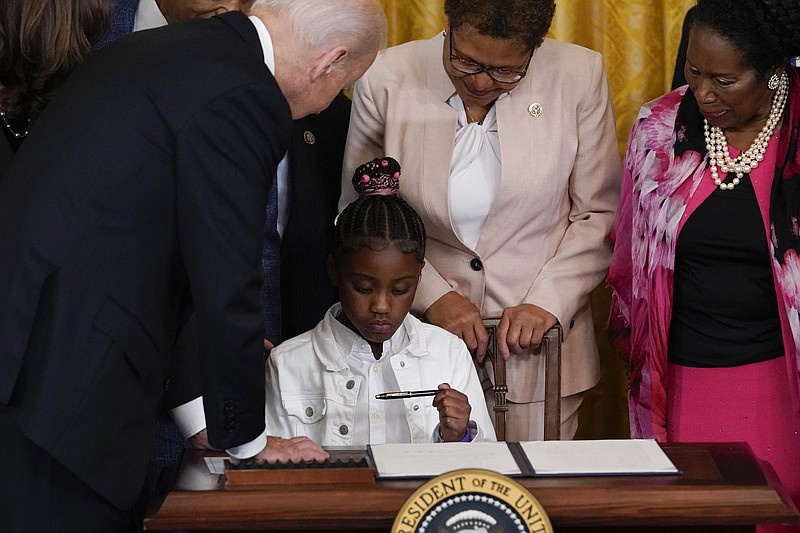WASHINGTON -- President Joe Biden signed an executive order Wednesday to improve accountability in policing -- a meaningful but limited action on the second anniversary of George Floyd's death that reflected the challenges in addressing racism, excessive use of force and public safety when Congress is deadlocked on stronger measures.
The event shaped by one tragedy occurred a day after a second one, a mass shooting at a Texas elementary school that killed 19 children and two teachers. Biden and Vice President Kamala Harris gave remarks that tried to comfort those affected by the shooting as well those who have suffered from police mistreatment, promising them that change could come eventually despite the partisan divides on Capitol Hill.
"I know progress can be slow and frustrating," Biden said. "Today we're acting. We're showing that speaking out matters. Being engaged matters. That the work of our time, healing the soul of this nation, is ongoing and unfinished and requires all of us never to give up."
Floyd's family was in the audience at the White House as the president declared that "what we do in their memory matters." With lawmakers unable to reach agreement on how to reform police policies and on efforts to reduce mass shootings, the president has limited avenues for advancing his campaign promises. And as he tries to build consensus, Biden is also attempting to strike a balance between police and civil rights groups at a time when rising concerns about crime are eclipsing calls for reform.
Most of Biden's order is focused on federal law enforcement agencies -- for example, requiring them to review and revise policies on use of force. It will also create a database to help track officer misconduct, according to the White House.
Although the administration cannot require local police departments to participate in the database, which is intended to prevent problem officers from hopping from job to job, officials are looking for ways to use federal funding to encourage their cooperation.
In addition, the order is designed to restrict the flow of surplus military equipment to local police.
Many organizations and lawmakers said the order was an important but incomplete step forward.
"While this action does not have the long-term impact that we had hoped for," Floyd family lawyer Ben Crump said in a statement, "it does represent incremental progress, and we need to commit ourselves to making progress every day."
The International Association of Chiefs of Police and the Fraternal Order of Police both engaged with the Biden administration on the order. They said that they "see many components of the order as a blueprint for future congressional action."
Yet not everyone was satisfied.
"President Biden's executive order is a poor excuse for the transformation of public safety that he promised the Black voters who put him in office," the Movement for Black Lives, a civil rights group, said in a statement.
Floyd's killing by Minneapolis police sparked nationwide protests two years ago. It was the largest series of demonstrations in American history, occurring in the midst of coronavirus lockdowns and President Donald Trump's divisive reelection campaign.
Information for this article was contributed by Fatima Hussein of The Associated Press.
